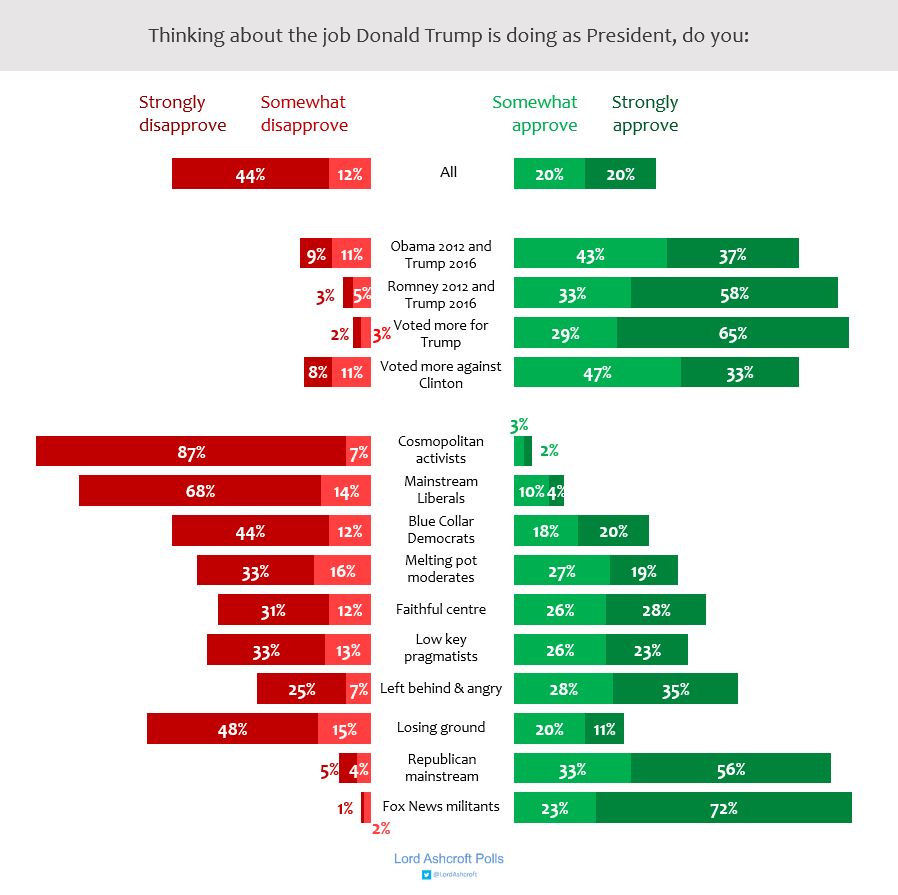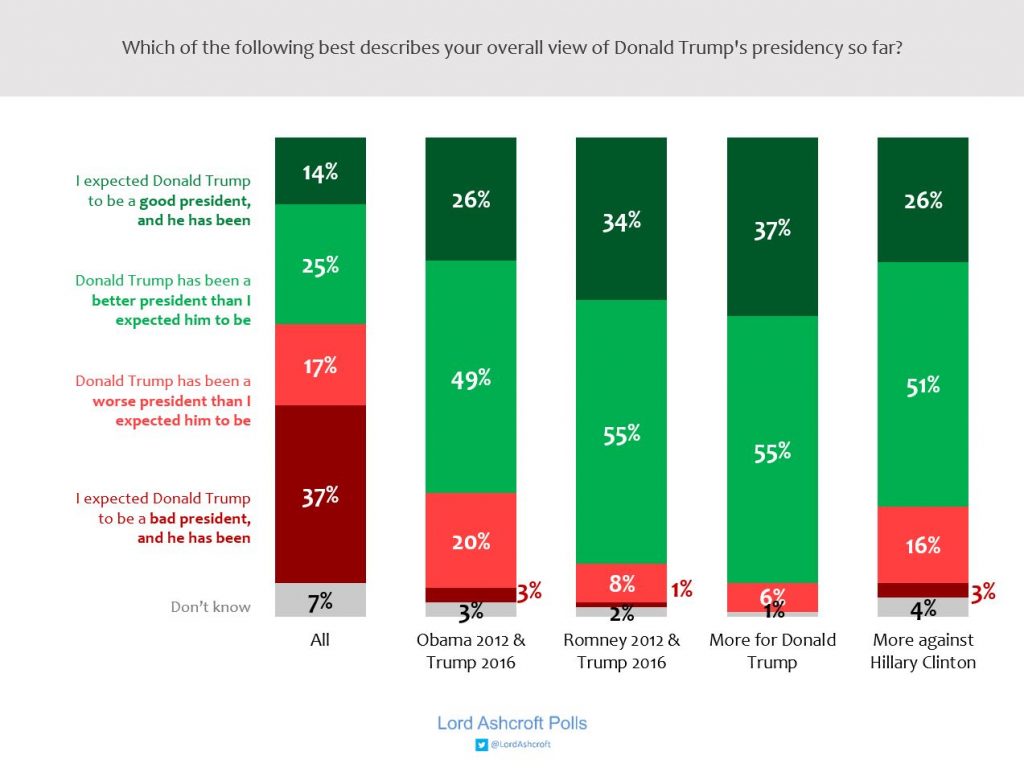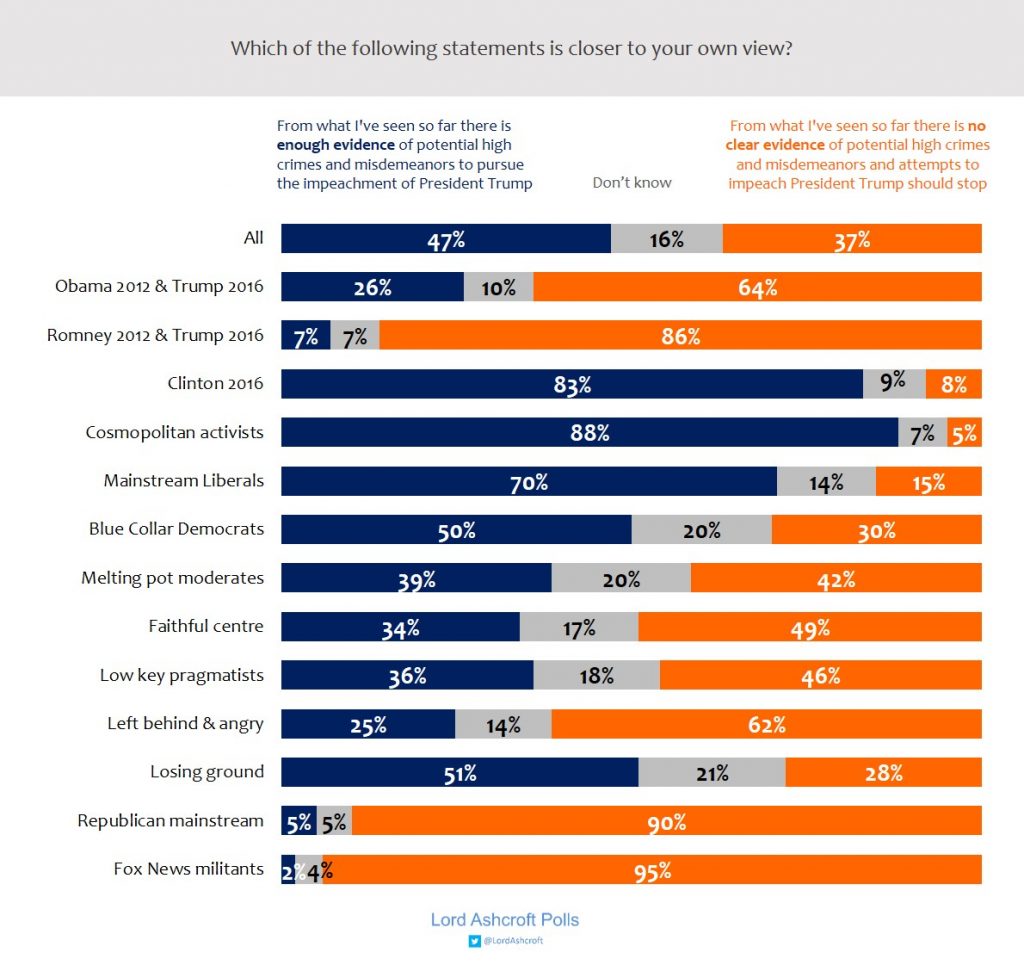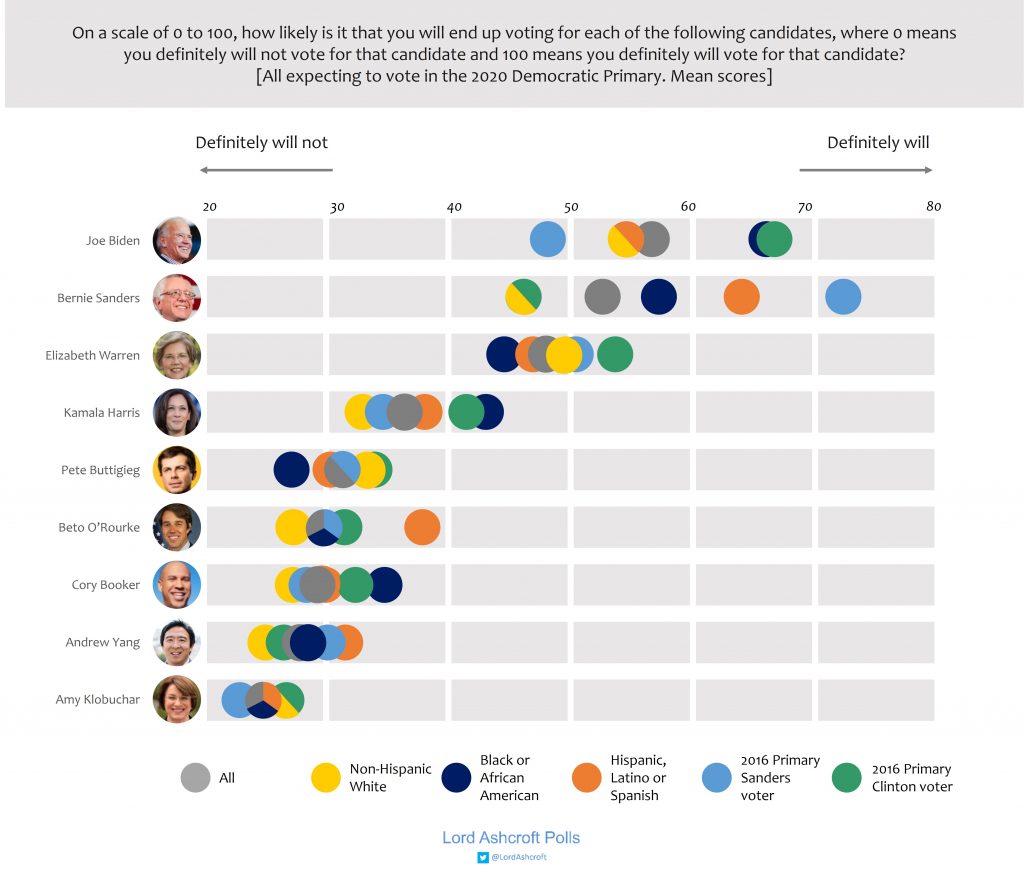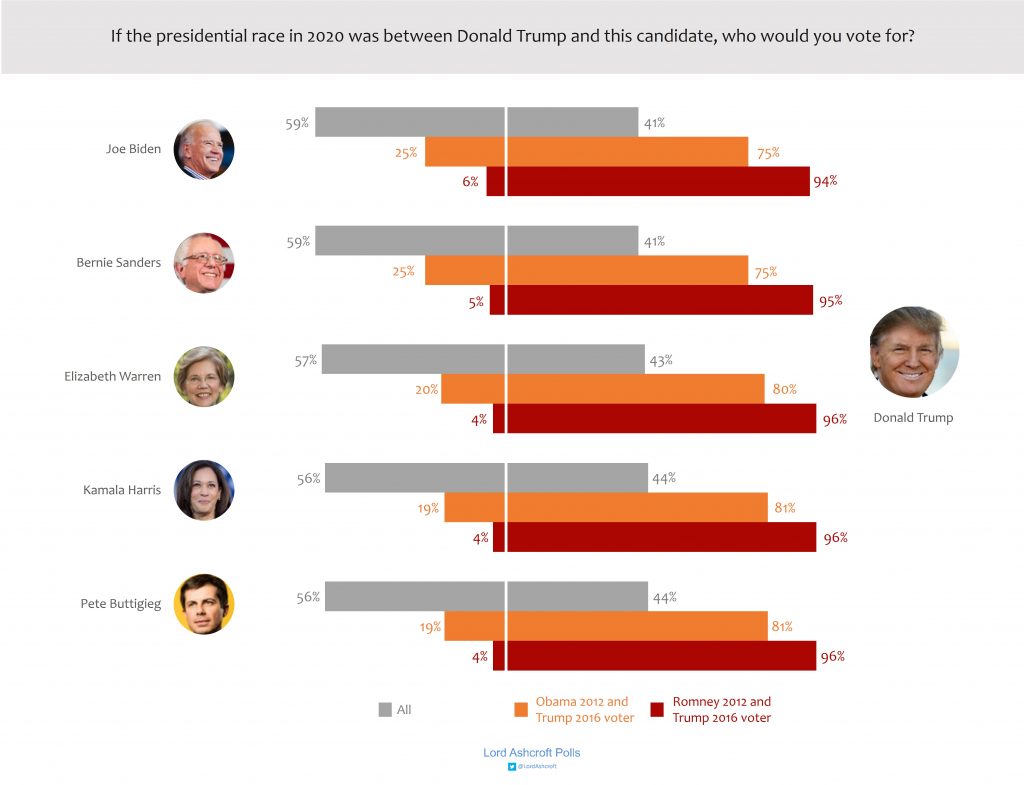
It’s the first Tuesday in November, which means that 52 weeks from today, Americans will be voting on whether or not to give Donald Trump a second term in the White House. My latest research sheds some light on what voters are thinking with a year to go – and why the outcome is anything but settled. The full findings are set out in my report, Trump’s Final Countdown?, but here are five of the main points.
Trump’s 2016 voters approve of his performance – but with wide variations
My 15,000-sample survey found voters disapproving of President Trump’s performance by 56% to 40%. More people said they “strongly disapproved” than the total with a positive view.
While two thirds of those who voted positively for Trump said they approved of his performance, only half as many of those who voted mainly to stop Hillary Clinton said the same. Those who had switched to Trump having voted for Obama in 2012 were also less impressed than Trump voters as a whole.
While the more partisan segments of the electorate we identified were predictably positive or negative about Trump’s performance, more centrist and uncommitted voters were much more evenly divided.
Just over half of Trump voters said he had exceeded their expectations as president, though most voters as a whole said they thought he had been as bad as they had anticipated or worse. One in five Obama-Trump voters and 16% of those who voted for him to stop Clinton think he has turned out to be a worse president than they had expected.
Our focus groups found his voters were most pleased with his record on the economy, tax, foreign policy, immigration and the Supreme Court. However, they often complained about his personal behaviour: “You knew what you were getting into. He acted like a two-year-old. But I’m surprised it’s as bad as it is. I thought a lot of the antics would quit once he became president.” Many still felt, as in 2016, that they could live with these failings as the price of getting the policies and actions they wanted: “We didn’t elect him to be presidential in the traditional sense.”
Impeachment cuts both ways
We found more Americans thinking there was enough evidence to pursue impeachment proceedings against President Trump (47%) than that there was no clear evidence, and a majority (56%) thinking those seeking impeachment “genuinely believe he has committed high crimes and misdemeanours,” not that they are doing so “simply because he is their political opponent.”
While three quarters of Republicans think there is not enough evidence to warrant impeachment proceedings, Obama-Trump voters are nearly four times as likely to think impeachment proceedings are justified (26%) as those who had previously voted for Mitt Romney (7%).
Most Democrats in our groups wanted to see impeachment go ahead – even if the Senate would not convict Trump and remove him from office, “it will educate the public. Hopefully people will see the list of things he’s done getting longer and longer.” But while a few Trump voters agreed (“You can’t use your power to have another country investigate your opponent’s family. You just can’t do that”), most saw it as a continuation of what they saw as a continuing partisan witch hunt, making them more inclined to want to defend him: “To me it’s like, ‘oh, again?’ From the time he took the oath of office they’ve tried to impeach him;” “It’s become one thing after another, getting something to blast Trump.”
Most Americans are still optimistic about the economy – but healthcare is key
A majority in our poll thought the economy would do well over the next year, though more thought this would be the case for them and their families (61%) than for the country as a whole (57%). Republicans were more optimistic on both counts, and talked in our focus groups about more job opportunities and retirement plans doing better. However, Obama-Trump voters were less upbeat than Trump voters as a whole, and were more likely to complain about the rising cost of living and to feel that tax cuts had benefited those at the top rather than people like them.
However, the economy was third on the list of voters’ main concerns, behind healthcare (named in the top three priorities by 47% of all voters) and immigration and border control (35%). While being the clear top priority for Democrats, healthcare is also second on the list for Republicans – and is more likely to be mentioned by Obama-Trump voters than Trump voters as a whole (as are the environment and climate change, crime, social security and education).
Democrats are a long way from settling on a nominee
My poll found Joe Biden in the lead among likely Democratic primary voters, slightly ahead of Elizabeth Warren and Bernie Sanders, and Democrats and Republicans were united at this stage in thinking Biden had the best chance of beating Trump.
We found little enthusiasm for any of the frontrunners in my focus groups, however. Democrats told us Biden seemed to lack new ideas (“he refers to things he did when Obama was president, not what he’s going to do”) and was showing his age with more “senior moments.” Sanders still commanded a degree of support among his 2016 fans, but many were now worried about his health and advancing years (“you’d be voting for his VP”). People also worried about the cost of his plans for free college and universal healthcare, as they did with Elizabeth Warren, whom few had warmed to even if she seemed competent. Pete Buttigieg was the candidate most likely to be mentioned positively and spontaneously, though some were worried that his relative youth and experience might be a barrier for general election voters. Overall, there seems plenty of room for movement in the Democratic primary race.
For voters as a whole, a switch away from Trump is not a done deal
Most national polls currently put Trump behind each of the most prominent Democratic candidates for 2020. My own indicative survey, with no filter for likely turnout, also had the president behind in five as-yet hypothetical scenarios, and it was notable that a quarter of Obama-Trump voters said they would now vote for Biden or Sanders over Trump.
We found that the previous Trump voters most open to an alternative were weary of his personal style, which they sometimes felt was a barrier to achieving results; disappointed with lack of progress on infrastructure; or worried about what he might do in a second term, especially on Medicare or Social Security. However, it was clear from the focus group discussions that most voters have yet to focus closely on the presidential race, and will not do so until the Democrats have settled on their nominee. But at this stage, few were impressed with what little they had seen of the options (“it’s the Creepy Uncle versus the Crazy Uncle,” as one said of Biden and Sanders), and the message they were most likely to have heard from the Democratic field at this point was the promise of free services from the government, which to many sounded unrealistic and dangerously expensive: “Their change is free education, free this, free that. That type of change destroys a country. We’ve seen it again and again in socialist countries. That type of change is not attractive to me.” The race has a long way yet to run.
